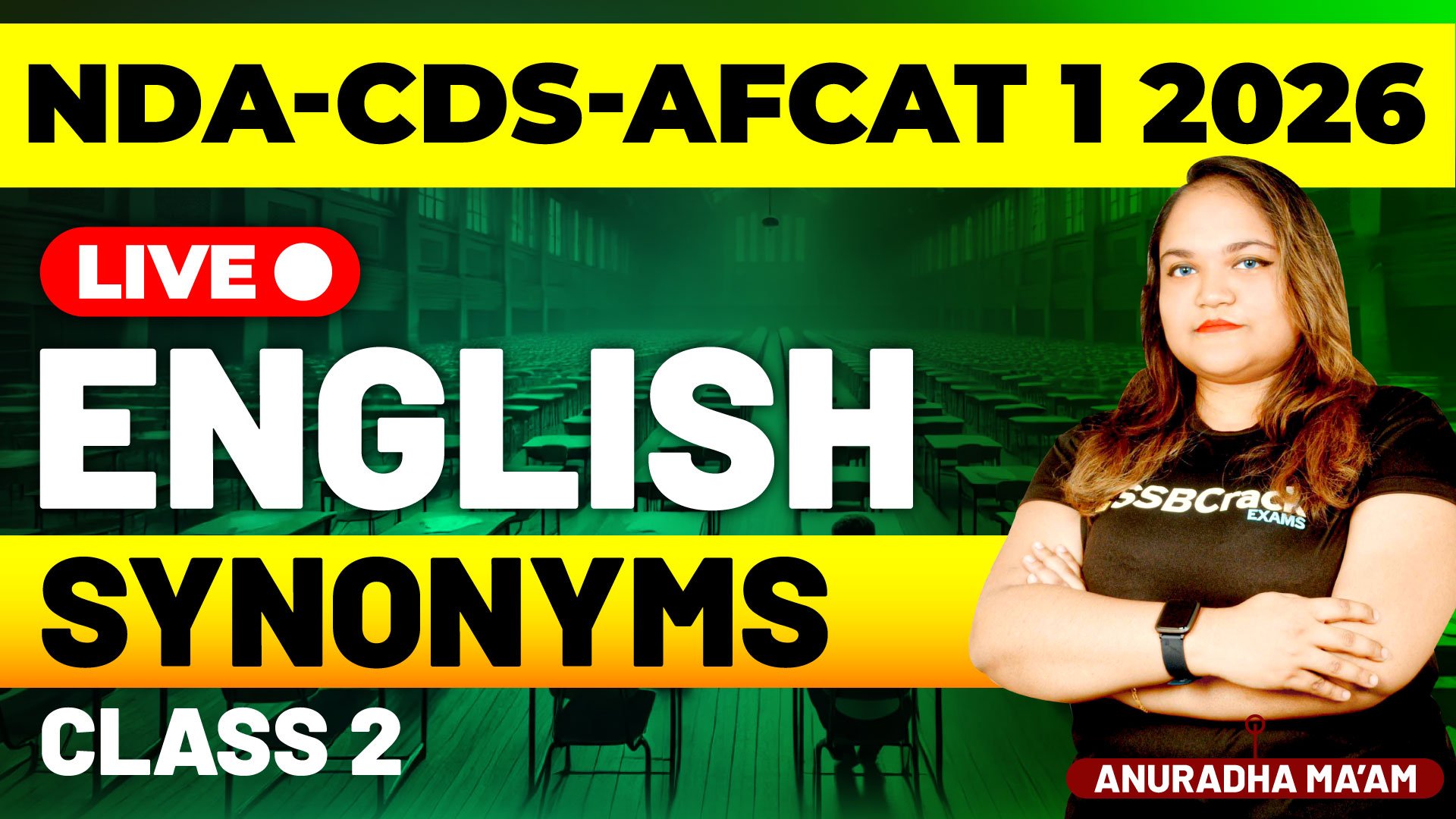The English Live Class 2 on Synonyms continued our focused vocabulary-building journey for the upcoming NDA, CDS & AFCAT 1 2026 examinations. Building on the foundation from Class 1, this session emphasized contextual understanding, word associations, and exam-oriented MCQs that help aspirants tackle tricky synonym-based questions with confidence.
In Defence exams, vocabulary-based questions test not just rote memorization but also word sense, usage, and judgment — essential attributes for effective communication and decision-making expected from future officers.
Why Synonyms Matter in Defence Exams
- High Frequency in Papers:
Every year, 3–5 questions in NDA, CDS, and AFCAT English sections come directly from synonyms. These are easy marks if your preparation is strong. - Foundation for Other Topics:
Understanding synonyms directly aids in Comprehension, Cloze Test, Sentence Completion, and Error Detection — all dependent on vocabulary strength. - Reflection of Officer-Like Qualities (OLQs):
A refined vocabulary reflects clarity of thought, articulation, and precision, aligning with OLQs like Effective Intelligence and Power of Expression. - Improves Elimination Accuracy:
Defence exams often include close options. A sound grasp of nuanced meanings helps in logical elimination and error-free selection.
Key Learnings from the Class
This session focused on advanced-level MCQs similar to those seen in previous years’ NDA, CDS & AFCAT papers. Each word was analyzed in context, ensuring that aspirants learn application, not just definitions.
Each question was discussed with meaning, synonym clusters, usage examples, and memory tips, helping students learn through association and repetition rather than rote memorization.
Class Highlights
- Contextual Learning: Understanding how the same word can change meaning in different contexts.
- Smart Vocabulary Building: Creation of synonym families (e.g., lazy – sluggish – indolent – lethargic).
- Exam Pattern Focus: Practicing MCQs modeled on NDA, CDS & AFCAT patterns.
- Interactive Word Recall: Using rapid-fire and elimination rounds to strengthen retention.
Memory Techniques Taught
- Root Word Method:
Learning through word origins (e.g., bene = good → benefit, benevolent, benefactor). - Synonym Chains:
Linking similar words together (e.g., calm – composed – serene – tranquil). - Context Sentence Creation:
Writing short sentences using new words to grasp their tone and usage. - Visual Memory:
Associating difficult words with relatable mental images to enhance recall.
Exam Perspective
In the NDA & CDS exams, synonyms are typically one-word substitution-based MCQs that test both meaning and tone accuracy.
In AFCAT, the level is slightly higher — focusing on contextual synonyms found in passages and sentence completions.
Aspirants who regularly practice with mock tests and revision flashcards find that vocabulary-based questions quickly become scoring areas in the English section.
Takeaways from the Class
- Strengthen daily reading habits — newspapers, editorials, and Defence-related magazines.
- Maintain a personal synonym notebook — list new words, meanings, and sentence uses.
- Revise synonym clusters weekly to improve long-term retention.
- Practice previous year papers to understand exam trends and recurring vocabulary.
Conclusion
Our English Live Class 2 on Synonyms deepened the understanding of vocabulary through contextual and conceptual learning.
Remember — in competitive exams like NDA, CDS, and AFCAT, precision of words equals clarity of thought.
Consistent vocabulary practice not only improves your written performance but also enhances your confidence, articulation, and expression — all vital qualities for a future officer in the Indian Armed Forces.
So keep learning new words daily, use them in your speech, and revise regularly — because every word learned today brings you one step closer to your dream uniform.







